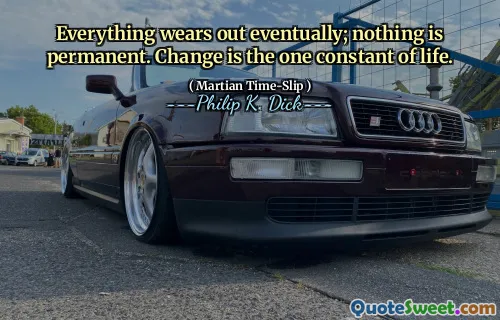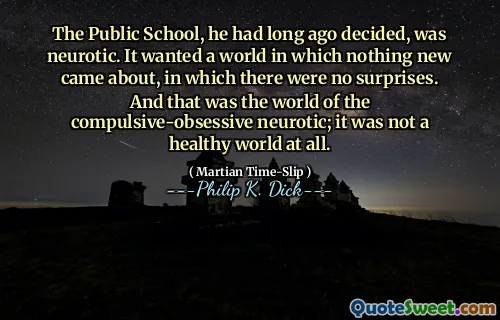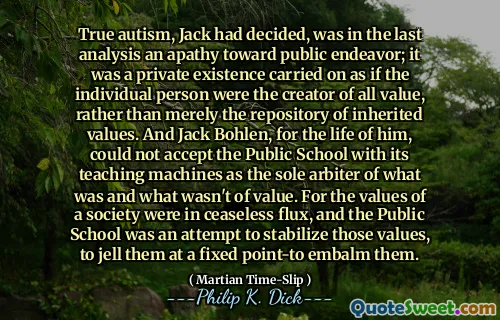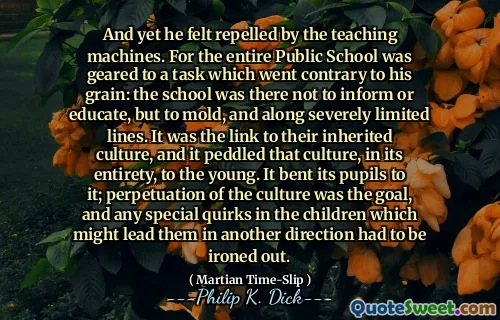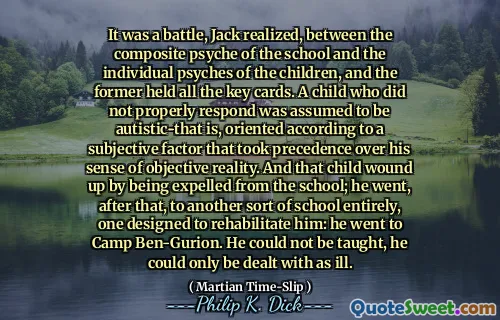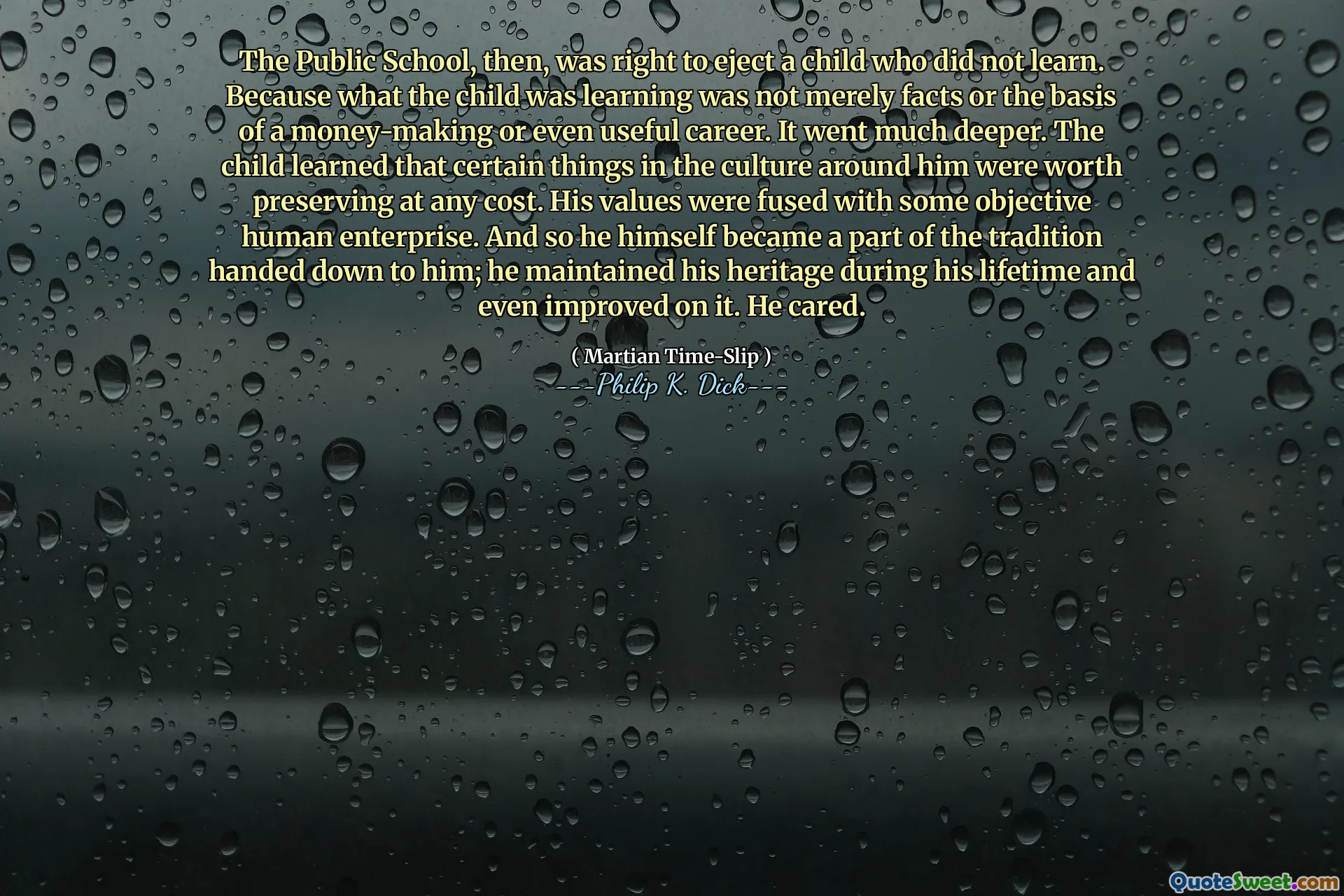
The Public School, then, was right to eject a child who did not learn. Because what the child was learning was not merely facts or the basis of a money-making or even useful career. It went much deeper. The child learned that certain things in the culture around him were worth preserving at any cost. His values were fused with some objective human enterprise. And so he himself became a part of the tradition handed down to him; he maintained his heritage during his lifetime and even improved on it. He cared.
In "Martian Time-Slip," Philip K. Dick explores the fundamental role of education in shaping not just knowledge but also values. When a child is expelled from school for not learning, it underscores that the lessons being imparted go beyond mere facts or vocational preparation. The education process is deeply intertwined with cultural preservation and the transmission of values that define one's heritage.
This signifies that true education involves nurturing a sense of responsibility towards one's cultural identity and allowing individuals to evolve within that framework. In this sense, the child's experience reflects a broader human endeavor where learning is linked to maintaining and enhancing one's legacy. Such an understanding fosters a sense of care and commitment to the tradition that shapes both individual and collective identities.

